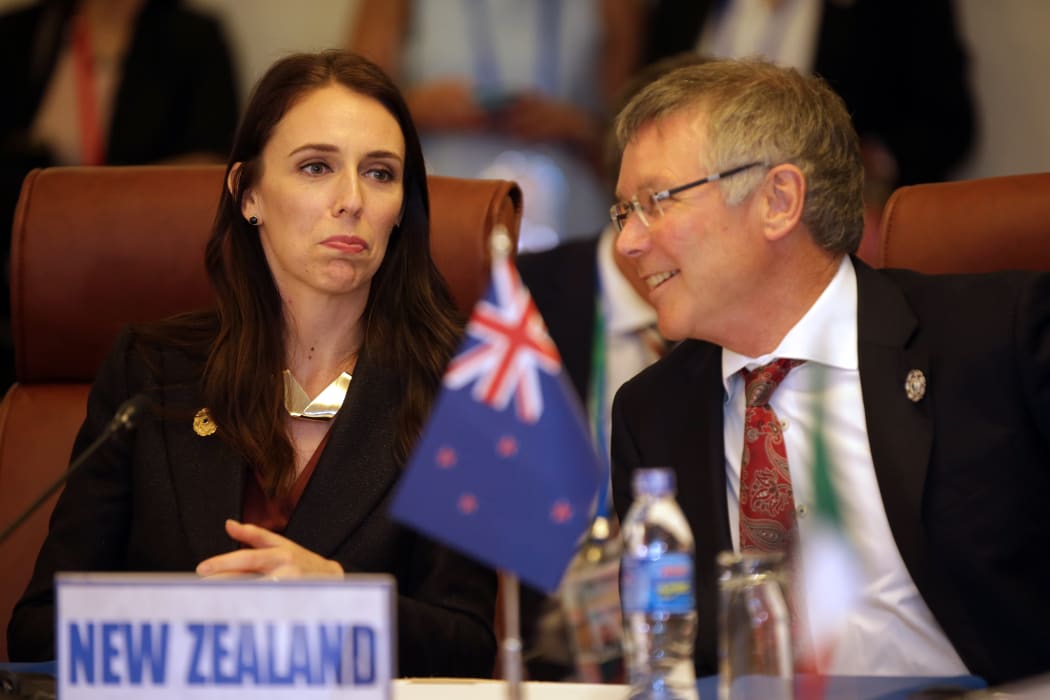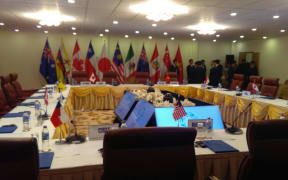Analysis - No one ever said trade deals were easy.
To the dismay of its supporters and delight of its critics, concluding the Trans-Pacific Partnership (TPP) is proving as elusive as ever.
The latest version of the controversial trade deal, TPP-11, unimaginably named after the number of countries remaining after the American president Donald Trump withdrew his nation earlier this year, failed after Canada pulled out of a critical meeting on the sidelines of APEC in Vietnam to try and reach an agreement.
New Zealand's government, like the other ten TPP nations, was blindsided.
The Trade Minister, David Parker, pointed out that Canada had expressed support to conclude a deal right to the very end.
"As of last night (Thursday), all of Canada's issues had been resolved to their satisfaction," Mr Parker said. "That seemed to change today."
Japan is likely to be furious.
It had championed TPP-11 following Mr Trump's withdrawal. Its prime minister, Shinzo Abe, had viewed the trade pact as preferable to America's desire for bilateral deals.
Trade advocates will no doubt be very disappointed.
Gaining better agriculture access to sensitive markets like Japan and Canada is very difficult, and TPP-11 offered farmers their best chance to compete on a more even playing field.
They had been quietly confident a deal could be struck.
"Truly bizarre developments in DaNang," tweeted the executive director of the International Business Forum Stephen Jacobi.

Jacinda Ardern and Trade and Export Growth Minister David Parker at the talks. Photo: AFP
New Zealand's Prime Minister, Jacinda Ardern, said she did not know the reasons why Canada decided to stay away.
Ms Ardern was quick to deflect any fault that might have come her way because of the government's demands for changes to the TPP.
She said officials had made good gains in protecting New Zealand's interests over controversial rules allowing foreign firms to sue government and market access.
"It was certainly our intent to make sure we saw some level of conclusion."
She rightly pointed out other countries had also wanted changes, including Vietnam, which had sought an extension to labour standards.
It's unclear when TPP talks might reconvene, if ever.
TPP opponents are celebrating, having long argued the contentious trade pact favoured corporate interests over those of consumers, workers, and the environment.
So is it the end for TPP?
The answer is probably no.
While the latest setback is a blow, Canadian officials insist it isn't the end for the trade pact.
The other 10 countries are likely to be reluctant to throw in the towel either, because of the sheer time and effort that has been put in by officials, ministers and leaders over many years to get close to securing a deal.
Nevertheless, the failure to get all the leaders in the room to discuss TPP raises questions about its future.
One man who may feel vindicated is Donald Trump. He dumped the TPP arguing it would leave America worse off. The failure to again get the agreement over the line suggests more leaders might be coming round to his way of thinking.







